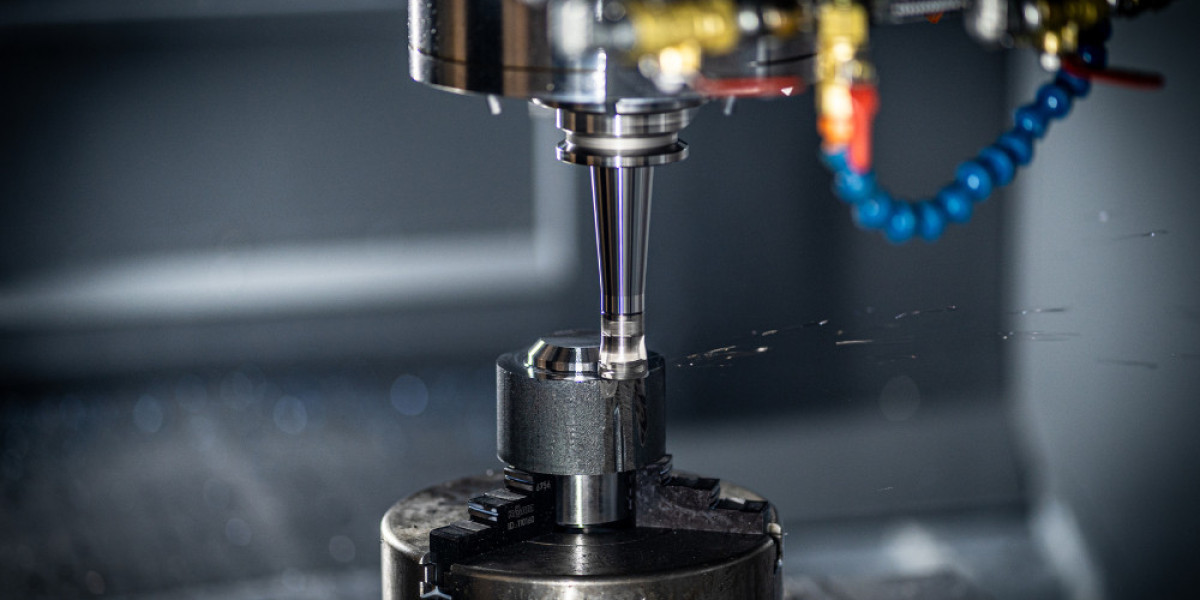CNC (Computer Numerical Control) turning is a fundamental process in precision machining, involving the rotation of a workpiece against a stationary cutting tool. The process is primarily used to create cylindrical components, such as shafts, pins, and bushings. Custom Cnc turning services cater to specific design and production requirements, offering highly accurate and repeatable results across various industries.
Whether it’s for aerospace, automotive, medical, electronics, or industrial applications, custom CNC turning ensures your components meet exact specifications, tight tolerances, and high surface finish requirements.
What Are Custom CNC Turning Services?
Custom CNC turning services refer to the tailored machining of parts using CNC lathes and turning centers. Unlike off-the-shelf or mass-produced parts, custom CNC-turned components are designed and fabricated to meet specific customer requirements, including dimensions, material selection, tolerances, finishes, and production volumes.
These services are ideal for:
Prototyping and product development
Short to medium production runs
High-precision, complex geometries
Low-volume, high-mix manufacturing
Key Capabilities of Custom CNC Turning
1. Multi-Axis CNC Turning
Custom services often utilize multi-axis CNC lathes, including 2-axis, 3-axis, and even up to 9-axis machines. Multi-axis lathes allow for the production of complex components in a single setup, reducing cycle times and improving accuracy.
2. Tight Tolerance Machining
Custom CNC turning is capable of maintaining tolerances as tight as ±0.0002 inches, depending on the material and part complexity. This is especially crucial in industries such as aerospace, medical, and defense.
3. Live Tooling Capabilities
Advanced CNC turning centers come equipped with live tooling (milling, drilling, tapping, etc.), allowing for additional operations beyond turning without the need for secondary machining, saving time and cost.
4. Rapid Prototyping
For product development and innovation, rapid prototyping with CNC turning allows for the fast production of functional prototypes that accurately represent the final product.
Materials Used in CNC Turning
Custom CNC turning services support a wide range of materials, including:
Metals: Aluminum, steel, stainless steel, brass, copper, titanium, Inconel, and more.
Plastics: Delrin, nylon, PEEK, PTFE, ABS, and polycarbonate.
Exotic Alloys: Hastelloy, Monel, and other specialized materials for high-performance applications.
Each material presents unique machinability challenges, and experienced machinists optimize cutting conditions accordingly for precision and durability.
Industries That Rely on Custom CNC Turning
1. Aerospace
Precision-turned components like bushings, landing gear parts, and actuator shafts require exacting tolerances and certifications for airworthiness.
2. Medical Devices
CNC turning enables the production of surgical instruments, orthopedic implants, and precision fittings used in medical applications.
3. Automotive
From drivetrain components to engine parts, custom CNC turning delivers strength, precision, and consistency.
4. Electronics
Connectors, housings, and custom heat sinks benefit from the accuracy and repeatability of CNC turning.
5. Oil & Gas
Parts such as valve bodies, couplings, and nozzles must withstand extreme conditions and are commonly made using CNC-turned methods.
Advantages of Custom CNC Turning Services
High Precision: Computer-controlled cutting ensures repeatable and consistent outcomes.
Cost Efficiency: Minimal material waste and reduced labor costs through automation.
Fast Turnaround: Capable of producing parts quickly for urgent orders or time-sensitive projects.
Scalability: From one-off parts to high-volume production runs.
Customization: Fully tailored machining for specific industry or product requirements.
Quality Assurance and Inspection
Leading CNC turning service providers invest in rigorous quality control systems. This often includes:
CMM (Coordinate Measuring Machine) inspection
In-process inspection with digital gauges
Final inspection reports and certifications (ISO 9001, AS9100, etc.)
Traceability of materials and processes
Design Support and Engineering Collaboration
Custom CNC turning providers often offer design-for-manufacturing (DFM) guidance to help clients optimize part designs for CNC processes. Engineering collaboration can lead to:
Reduced production costs
Improved manufacturability
Better performance of the final part
Elimination of unnecessary complexity
Surface Finishes and Secondary Processes
Custom CNC-turned parts can undergo a variety of finishing processes:
Anodizing
Plating (zinc, nickel, chrome)
Powder coating
Polishing and deburring
Heat treating
Engraving or laser marking
These finishing options enhance appearance, functionality, corrosion resistance, and wear resistance of the machined components.
Choosing the Right CNC Turning Service Provider
When selecting a provider for custom CNC turning, consider the following factors:
Experience with similar materials and parts
Range of machines and capabilities
Certification and quality standards
Lead times and scalability
Communication and engineering support
Customer reviews and reputation
Working with an experienced, reliable partner ensures that your project will meet specifications, deadlines, and budget expectations.
Conclusion
Custom CNC turning services play a vital role in modern manufacturing by offering highly accurate, flexible, and efficient solutions for producing complex and critical components. With the right provider, you gain access to cutting-edge technology, skilled machinists, and streamlined production processes tailored specifically to your project's needs.
Whether you're developing a new prototype, scaling up production, or needing high-performance parts for critical applications, custom CNC turning offers the precision, reliability, and versatility required to bring your designs to life.








